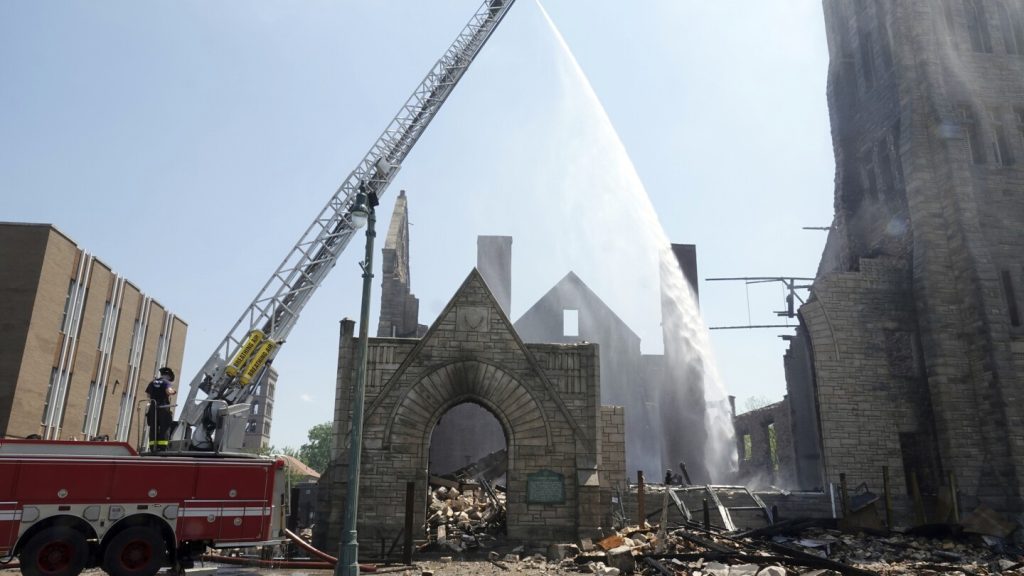MEMPHIS, Tenn. (AP) — A fire that severely damaged a historic Black church that served as the headquarters for a 1968 sanitation workers’ strike, which brought the Rev. Martin Luther King Jr. to Memphis, was intentionally set, investigators said Wednesday.
The fire at the Clayborn Temple, which was undergoing a yearslong renovation, was set in the interior of the church, the Memphis Fire Department said in a statement. Investigators are searching for a person suspected of being involved with the blaze.
Flames engulfed the downtown church in the early hours of April 28. Later that day Memphis Fire Chief Gina Sweat said the inside of the building was a total loss but there was still hope that some of the facade could be salvaged.
The fire department said May 14 that the building had been stabilized and investigators would use specialized equipment to study the fire’s cause.
Located just south of the iconic Beale Street, the Clayborn Temple was built in 1892 as the Second Presbyterian Church and originally served an all-white congregation. In 1949 the building was sold to an African Methodist Episcopal congregation and given its current name.
Before the fire it was in the midst of a $25 million restoration project that aims to preserve the architectural and historical integrity of the Romanesque revival church, including the revival of a 3,000-pipe grand organ. The project also seeks to help revitalize the neighborhood with a museum, cultural programing and community outreach.
King was drawn to Memphis in 1968 to support some 1,300 predominantly Black sanitation workers who went on strike to protest inhumane treatment. Two workers had been crushed in a garbage compactor in 1964, but the faulty equipment had not been replaced.
On Feb. 1 of that year, two more men, Echol Cole, 36, and Robert Walker, 30, were crushed in a garbage truck compactor. The two were contract workers, so they did not qualify for worker’s compensation, and had no life insurance.
Workers then went on strike seeking to unionize and fighting for higher pay and safer working conditions. City officials declared the stoppage illegal and arrested scores of strikers and protesters.
The Clayborn Temple hosted nightly meetings during the strike, and the movement’s iconic “I AM A MAN” posters were made in its basement. The temple was also a staging point for marches to City Hall, including one on March 28, 1968, that was led by King and turned violent when police and protesters clashed on Beale Street. One person was killed.
When marchers retreated to the temple, police fired tear gas inside and people broke some of the stained-glass windows to escape. King promised to lead a second, peaceful march in Memphis, but he was shot by a sniper while standing on the balcony of the Lorraine Motel on April 4.

